|
African American Spirituals designed by |
|
Godfrey Henneghan |
|
|
Privacy Policy Collection and Use of Online InformationOur web server automatically collects your IP address when you visit our site. (Your IP address is your computer's unique address that lets other computers attached to the Internet know where to send data, but does not identify you individually.) We use your IP address to help diagnose problems with our server and to compile statistics on site usage. We do not make your IP address available to anyone outside of African American Spirituals. To provide better service and a more effective website, sections of this site may use "cookies" as part of our interaction with your browser. A cookie is a small text file (typically only a few bytes) that we place on your hard drive to allow our server to identify your computer. Our cookies will not attempt to read any information on your hard drive, and we do not combine information collected through cookies with other personal information to determine your identity or your email address. When you visit certain areas of this site, you may be asked to provide personally identifiable information (such as name, address, telephone number, email address, etc.) that we need to process your request. In the event that you decline to provide such information, you limit our ability to serve you. Still, we invite you to continue to visit the site and take advantage of the wealth of information it offers. Secure TransmissionsPlease be assured that this site has security measures in place to protect the information you provide us. We encrypt information that is deemed sensitive or data that must remain secure to meet legal requirements. Protection of Personal InformationYour personal information is available only to African American Spirituals employees who have a need to know it. It will not be available for public inspection without your consent. However, we may collect or disclose personal information if the collection or disclosure is: (1) necessary to perform the legal duties of the African American Spirituals; (2) authorized by the District of Columbia Freedom of Information Act or other District of Columbia or federal statute or regulation; (3) made pursuant to a subpoena, court order or by law, (4) for the purposes of validating the identity of the user, or (5) used solely for statistical purposes in a form that can not be used to identify any particular person. Also, no site user information will be shared, sold, or transferred to any third party without your prior consent. Access is given only to those qualified professionals who provide African American Spirituals services consistent with your interactions with our site. Right to Inspect, Amend, or Correct Personal RecordsEvery site user who provides us with personal information has the right to inspect, amend, or correct his or her own personal information. You may ask to inspect your personal information by sending an email to us.
Videos played on African American Spirituals
|
|
Terms and Condition of Service PLEASE REVIEW THE TERMS AND CONDITIONS OF USE CAREFULLY AND IN ITS ENTIRETY BEFORE USING THIS SITE. YOUR ACCESS TO AND USE OF African American Spirituals'S SITE IS SUBJECT TO THE FOLLOWING TERMS AND CONDITIONS, AS WELL AS ALL APPLICABLE LAW AND REGULATIONS. YOUR ACCESS TO THE SITE IS IN CONSIDERATION FOR YOUR AGREEMENT TO THESE TERMS AND CONDITIONS OF USE, WHETHER OR NOT YOU ARE A REGISTERED USER. BY ACCESSING, BROWSING, AND USING THE SITE, YOU ACCEPT, WITHOUT LIMITATION OR QUALIFICATION, THESE TERMS AND CONDITIONS OF USE. ALL DEFINED TERMS APPEAR IN THE GLOSSARY AT THE END OF THE TERMS AND CONDITIONS OF USE. There are sections of African American Spirituals's website that may connect you to other sites outside of the control of African American Spirituals. These terms and conditions apply only to those areas that are registered under African American Spirituals's name. Please refer to the Terms of Use for those sites outside of African American Spirituals's control.
Modification of the Agreement
Conduct
Registration
Termination of Use
Links to Other Sites
Policy on Spamming
Content
Intellectual Property Ownership IndemnityYou agree to defend, indemnify, and hold harmless African American Spirituals, the Government of the District of Columbia and their officers, employees, agents, representatives, contractors, successors and assigns from any and all liabilities and costs incurred by Indemnified Parties in connection with any claim arising from any breach by you of these Terms and Conditions of Use, including reasonable attorneys' fees and costs. You agree to cooperate as fully as may be reasonably possible in the defense of any such claim. African American Spirituals reserves the right to assume, at its own expense, the exclusive defense and control of any matter otherwise subject to indemnification by you. You in turn shall not settle any matter without the written consent of African American Spirituals. Disclaimer of WarrantyYou expressly understand and agree that your use of the Site, or any material available through this Site or by links to other websites, is at your own risk. Neither African American Spirituals, Site will be uninterrupted, problem-free, free of omissions, error–free, or that our Site is free from viruses, unauthorized code, or other harmful components; nor do they make any warranty as to the results that may be obtained from the use of the Site. The content and function of the Site are provided to you "as is," without warranties of any kind, either express or implied, including, but not limited to, warranties of title, merchantability, fitness for a particular purpose or use, or "currentness," non-infringement, or warranties by virtue of course of dealing or custom of trade. Limitation of LiabilityIn no event will African American Spirituals, be liable for any direct, compensatory, incidental, indirect, special, punitive, exemplary, or consequential damages, arising out of your use of or inability to use the Site, including without limitation, loss of revenue or anticipated profits, loss of goodwill, loss of business, loss of data, computer failure or malfunction, or any and all other damages. If, notwithstanding the other terms within the Terms and Conditions (or any other agreement between you and African American Spirituals), we should have any liability to you for any loss, harm or damage, you and we agree that such liability shall under no circumstances exceed $100.00. You and we agree that the foregoing limitation of liability is an agreed allocation of risk between you and us. Additional TermsChoice of Law. This Terms and Conditions of Use shall be governed by, construed and enforced in accordance with the laws of the District of Columbia, without giving effect to any principles of conflicts of law. In rendering an award pursuant to an arbitration action, the arbitrator shall determine the rights and obligations of the parties according to the substantive and procedural laws of the District of Columbia. The laws of the District of Columbia shall apply to all uses of the website, its data and this system. By use of the website and any data contained therein, you agree that your use shall conform to all applicable law and regulations and you shall not violate the rights of any third parties. Courts located within the District of Columbia shall have jurisdiction over all matters related to this Terms and Conditions of Use. Waiver. The waiver by us of a breach of any provision of the Terms and Conditions of Use shall not operate or be construed as a waiver of any other or a subsequent breach of the same or a different kind. Assignment. We may freely assign our rights under the Terms and Conditions of Use. However, you may not assign your rights without prior written permission, which may be refused in our sole discretion. Any attempt by you to assign your rights without our permission shall be void. Severability. If any provision of the Terms and Conditions of Use shall be held by a court of competent jurisdiction to be contrary to law, the remaining provisions shall remain in full force and effect. GlossaryAs used in the Terms and Conditions of Use, the following words shall have the following meanings: “Content” refers to the photographs, illustrations, images, text, audio and software that are contained on or made available to you through this Site. “Site” refers to this website, its data and system. “We” “us” and “our” refer to African American Spirituals, and their officers, employees, agents, representatives, contractors, successors and any other parent, subsidiary and related agencies. When any of these terms are used in relationship to Content, they also include the persons or entities that license or supply such Content to us.
“You” and “your” refer to the user that uses this Site and
the user’s employer or principal if the user’s use of this Site is on behalf
of such employer or principal.
Videos played on African American Spirituals |
| African American Spirituals A National Treasure | |||||||||||||||||||||||||||||||||||||||
|
|||||||||||||||||||||||||||||||||||||||
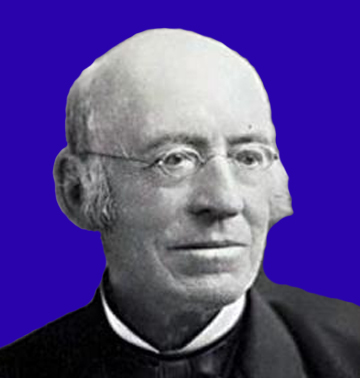 |
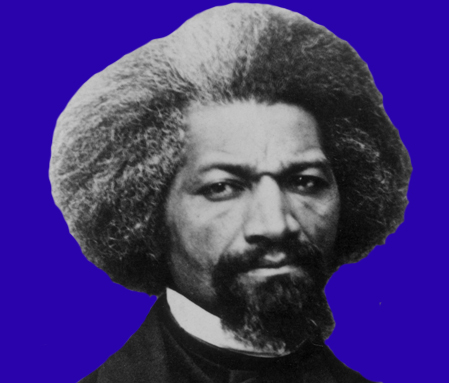 |
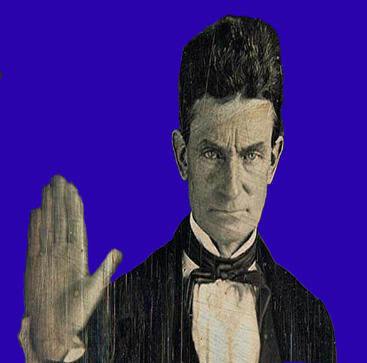 |
| William Lloyd Garrison | Frederick Douglass | John Brown |
| African American Spirituals |
| A National Treasure |
From 1619 to 1865, enslaved African Americans created their own unique form of expression known today as African American Spirituals. As African Americans were not allowed to speak their native languages or play African instruments, African American Spirituals incorporated into the English language and the Christian religious faith.
Simply defined, African American Spirituals are the songs created and first sung by African Americans during the times of slavery. These songs are celebrated as a American National Treasure. For they are the source for which gospel, jazz and blues evolved.
The lyrics of these songs are tightly linked with the lives of their authors who were inspired by the message of God and the gospel of the Bible. The most pervasive message conveyed by African American Spirituals is that of an enslaved people for yearning to be set free. The slaves believed they understood better than anyone what freedom truly meant in both a spiritual and a physical sense.
The Old Testament scriptures that are referenced in their songs spoke of deliverance in this world and they believed God would deliver them from bondage. These spirituals are different from hymns and psalms because the African American slave used them as a way of sharing the hard condition of being a slave while also singing about their love and faith in God.
The African American slave was forbidden to learn how to read and write. They had to find ways to communicate secretly. African American Spirituals were a medium for several layers of communication and meaning
African American Spirituals where the strong oral tradition of songs, stories proverbs and historical accounts. African American Spirituals have been apart of American culture from times of slavery to today and their legacy is clear in today’s gospel music. African American Spirituals where also sung during the Civil Rights Movement in the 1960’s. Songs that we are familiar with such as "We Shall Overcome" and "Marching Round Selma were heard in the south to united African American in the struggle for civil rights.
Some of the more commonly known songs including "Swing Low Sweet Chariot" and "The Gospel Train", used language which described activities but had a second meaning relating to the underground railroad.
The lyrics used in African American Spirituals became a metaphor from freedom of slavery and they were a secret way for slaves to communicate with each other, teach there young, record there history and heal there pain.
Frederick Douglas a fugitive slave who became one of the United States leading abolitionist stated that African American Spirituals told a tale of woe which was all together beyond feeble comprehension and that every tone was a testimony against slavery and a prayer to God for deliverance from chains.
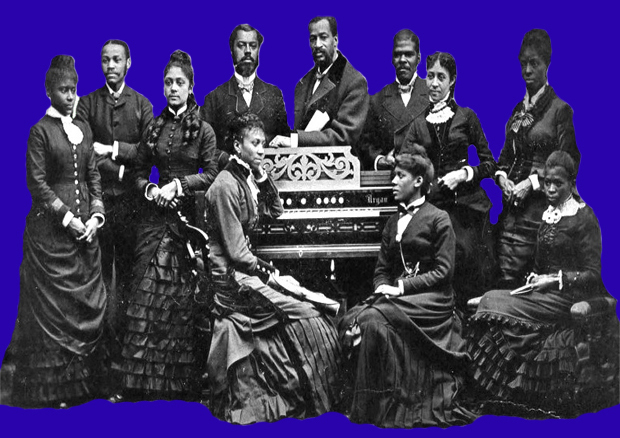
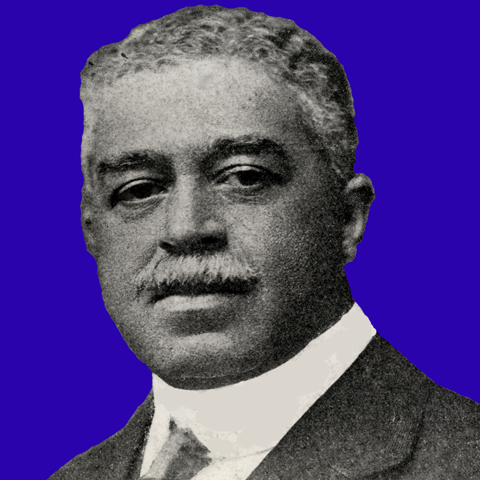
| Harry T Burleigh |
| December 2, 1866 to September 12, 1949 |
African American Classical Composer, Arranger and Professional Singer
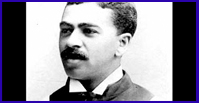 |
 |
 |
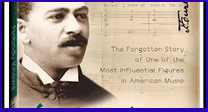 |
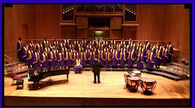 |
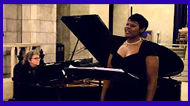 |
 |
 |
 |
 |
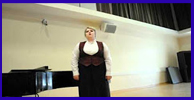 |
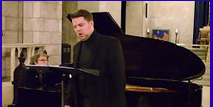 |
 |
 |
 |
 |
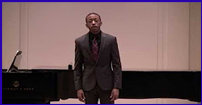 |
 |
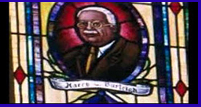 |
 |
Harry T Burleigh
For more than 200 years, slavery was legal in the present boundaries of the United States. A country founded on the belief that all men are created equal with the God given right to life, liberty and the pursuit of happiness. With one third (1/3) of its populations living in slavery, the United States would partake in one of history great ironies. Its incarcerated inhabitants, a nation enslaved would write the countries first folk music and sing the nations first songs of freedom.
Millions of voices and centuries of toil will rise up and become one voice and that voice will create a musical genre to which all American songs could trace their lineage and their roots.
Although his name is relatively unknown, Harry Thacker Burleigh (named Henry after his father) born on December 2, 1866 in Erie Pennsylvania.
Music was everywhere in the Burleigh’s home. His father Henry Burleigh who died when Harry was a child would lead the family in singing while they worked. His grandfather formerly enslaved was the town crier and lamp lighter and would take Harry and his older brother Reginald with him on his nightly rounds. Grandfather and grandsons would sing the songs of the African slave. The songs that the grandfather’s father and his grandfather sang songs of life and freedom.
Harry’s mother Elizabeth Burleigh and her sister Louisa taught him the songs of the European classical tradition. Elizabeth Burleigh was a college-educated woman fluent in both French and Greek. But in the early days of emancipation she was only able to get a job as a janitor and housemaid. She and her son Harry worked in the home of Elizabeth Russell a local arts patron who hosted performances of art songs. Young Harry would listen from a distance and the songs and singers he heard in Elizabeth Russell’s home help release his inner voice. A deep and rich baritone voice that was soon in demand at churches synagogues and homes in and around Erie Pennsylvania.
In 1892, Harry T Burleigh left Erie Pennsylvania to pursue a musical career. With only a few belongings an a head full of music, Harry T Burleigh traveled to New York City to audition for the National Conservatory of Music.
The years Harry T Burleigh spent at the Conservatory greatly influenced his career mostly due to his friendship with Antonin Dvorák the Conservatory’s director. After spending countless hours recalling and performing the African American Spirituals that he had learned from his grandfather, Harry was encourage to preserve these songs in his on arrangements and their themes could be heard in Antonin Dvorák’s new world symphony.
Before the turn of the century Harry T Burleigh established himself as a composer of popular art songs. For decades Harry T Burleigh traveled the world performing the songs of his grandfather all the while giving his country it’s first song which became jazz, swing, blues and eventually rock.
Harry T Burleigh died on September 12, 1949 and was buried in Erie Pennsylvania.
| Harry T Burleigh |
| December 2, 1866 to September 12, 1949 |
African American Classical Composer, Arranger and Professional Singer

African American Spirituals Videos
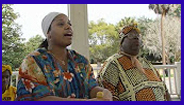 |
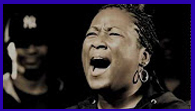 |
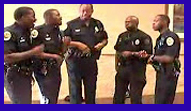 |
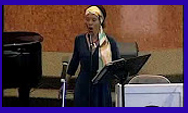 |
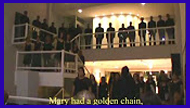 |
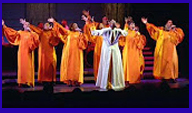 |
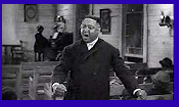 |
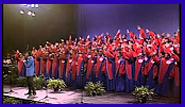 |
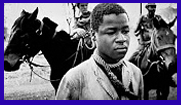 |
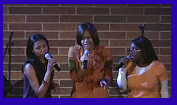 |
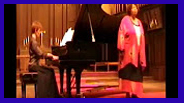 |
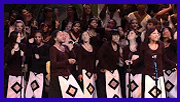 |
 |
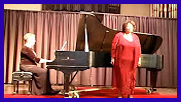 |
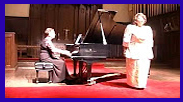 |
 |
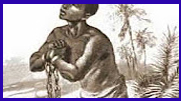 |
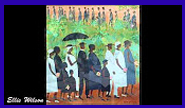 |
 |
 |
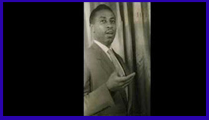 |
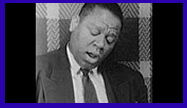 |
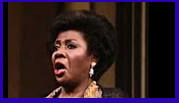 |
 |
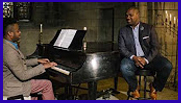 |
 |
 |
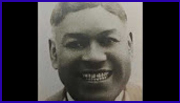 |
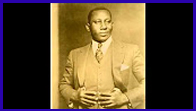 |
 |
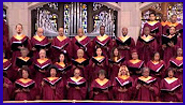 |
 |
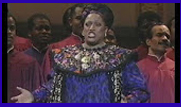 |
 |
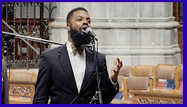 |
 |
 |
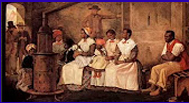 |
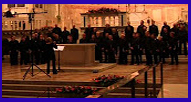 |
 |
| African American Spirituals |
| Instrumentals |
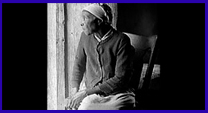 |
 |
 |
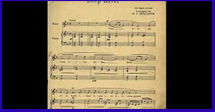 |
 |
 |
 |
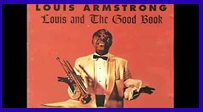 |
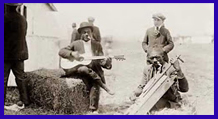 |
 |
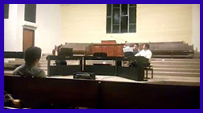 |
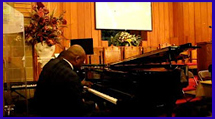 |
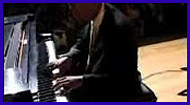 |
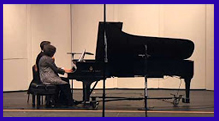 |
 |
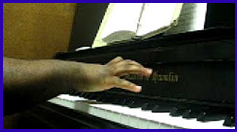 |
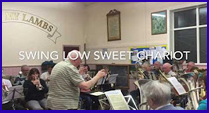 |
 |
 |
 |
| African American Spirituals |
| A National Treasure |
| African American Spirituals A National Treasure | |||||||||||||||||||||||||||||||||||||||
|
|||||||||||||||||||||||||||||||||||||||
 |
 |
 |
| William Lloyd Garrison | Frederick Douglass | John Brown |
Buy African American Spirituals
| African American Spirituals |
| A National Treasure |
| African American Spirituals A National Treasure | |||||||||||||||||||||||||||||||||||||||
|
|||||||||||||||||||||||||||||||||||||||
|
African American Spirituals © 2014 - 2023 All Rights Reserved |
African American Spirituals A National Treasure |